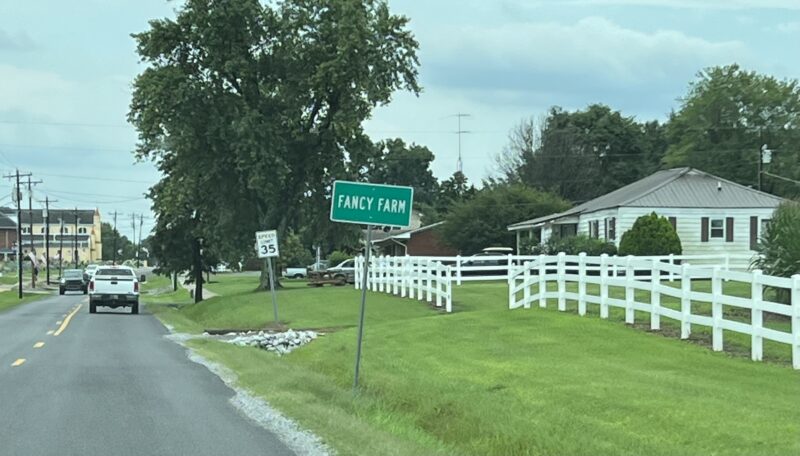Politicians of all stripes have been making promises and trying to solve the Rubik’s Cube that is the Brent Spence Bridge for years. President Joe Biden’s signing of the $1.2 trillion infrastructure bill on Monday could present the opportunity and leave Kentucky’s Governor, Andy Beshear a political beneficiary.
The bridge, which carries Interstates 71 and 75 across the Ohio River, is “structurally deficient” because of its narrow lanes, lack of emergency shoulders, and constant backups. The bridge has been known to federal authorities as being deficient since the 1990s.
A companion bridge proposed seven years ago has been suggested as the solution to the bottleneck. However, with Cincinnati on the northern side of the river and many residents in Northern Kentucky counties commuting a toll-based solution has met fierce resistance.
On Monday, Beshear told reporters that federal infrastructure grant dollars could make the $2.5 billion companion bridge toll-free. Kentucky is expected to receive $4.6 billion in funding over the next five years for transportation projects. The Commonwealth and other states will also be eligible for $12.5 billion in grant funding specifically for bridge funding.
“This gives us a chance to do what many thought was previously impossible,” Beshear said in the news conference. “We are going to put in that application, and I’m going to do everything I can to make sure that there are different ways we can take whatever remaining share in Kentucky there is and make this work.”
If a deal is done in time, an existing footprint west of the Brent Spence Bridge would be a shovel-ready site and some speculate construction of a new bridge could take place in 2023 – the same year Beshear will seek re-election.
Twenty-three, that is the number of counties Andy Beshear won in his razor-thin margin of victory against former Gov. Matt Bevin in 2019. When the votes were tallied on Election Day, Beshear emerged with just over 5,000 more votes than Bevin, a 0.37 percent margin.
Beshear technically won two of the three northern Kentucky counties, a surprise, given how Republican the suburban area votes. In 2019, Beshear won Kenton and Campbell Counties by a few thousand votes together. Bevin underperformed the area and ended up splitting the votes with Beshear, giving up 58,778 votes in the counties to Beshear compared to Bevin’s 62,523 votes, according to certified General Election results by the State Board of Elections.
As a comparison, the last Democrat to win the governorship was Beshear’s father, Steve. In 2011, former Gov. Steve Beshear, an incumbent, won Campbell Co. by less than 100 votes. The elder Beshear badly lost Boone Co. and effectively split the votes in Kenton Co., but still lost the county.
In 2023, the race is going to be even tougher than in 2019. Bevin was in an incredibly vulnerable position heading into the election, with many in the GOP casting votes against Bevin rather than for Beshear.
If Beshear is going to win in 2023 he will need every vote he can get. If he is going to recreate the 2019 map, he will need to again turn out votes and play in Northern Kentucky. A solution to the Brent Spence problem, without a need for tolls, would receive a tremendous amount of earned media in the expensive television market and would give Beshear an issue to pin his re-election campaign to in the region.
Northern Kentucky is but one piece in a much larger strategy for Beshear. The governor will again need to overperform in Louisville and Lexington in part by ensuring as many people as possible come out to vote. In 2019, Bevin won 97 counties in the state, most of them rural, showing a deepening divide between urban and rural Kentuckians.
Who is Brent Spence? The bridge was named for the longest-serving Kentucky Congressman of the time, Brent Spence. A Democrat from Newport, Kentucky, he served in the Kentucky state Senate from 1904 to 1908. Spence was elected to Congress in 1930, holding the position until 1963 when he was defeated by another incumbent when his 5th Congressional district was merged through a redistricting process into the 4th Congressional District. Spence was 88-years old, the oldest serving Congressman at the time. Spence was also the last Democrat to hold the 5th Congressional District seat.




 Login
Login  Must include at least 8 charaters
Must include at least 8 charaters



